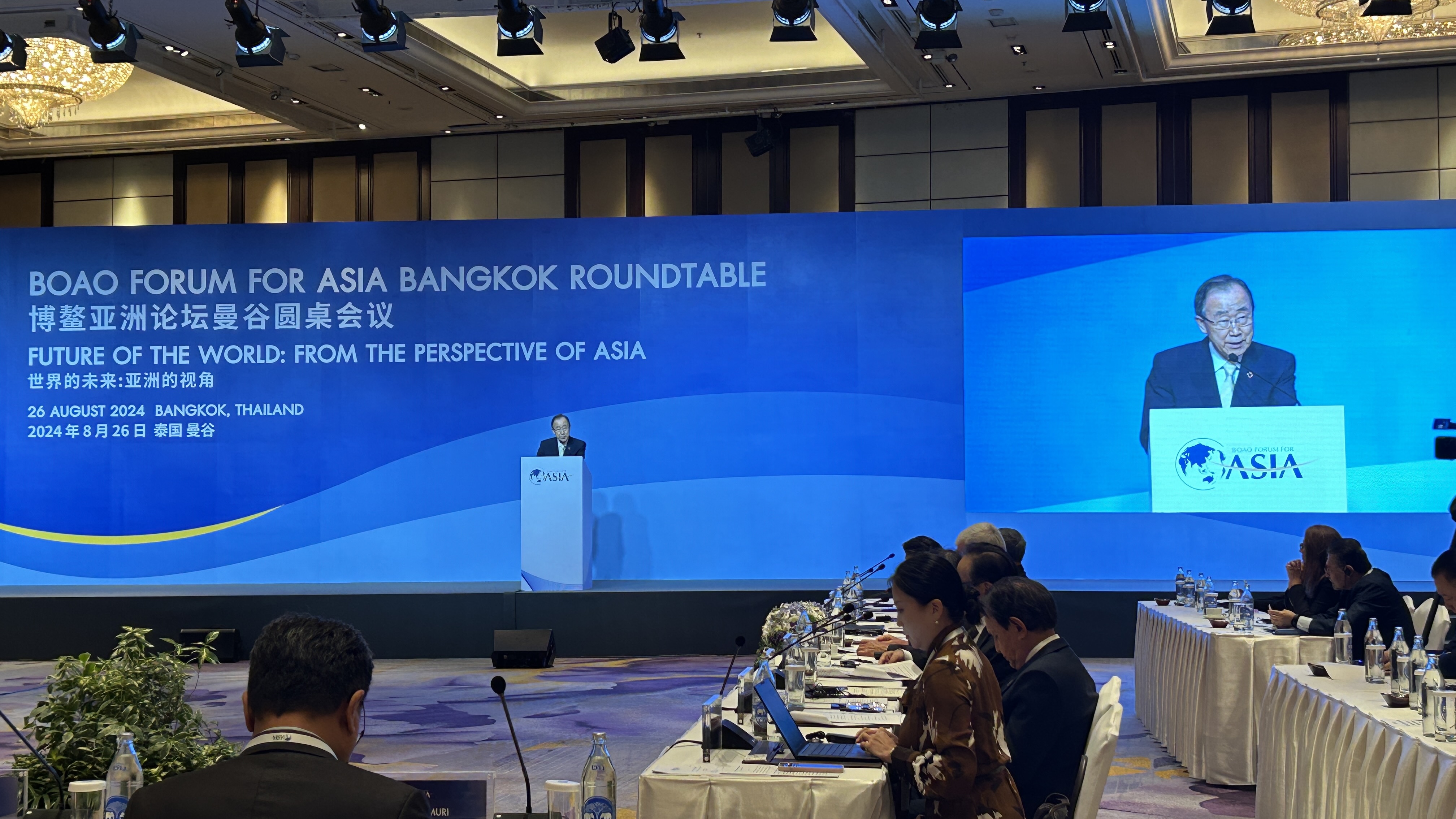
Asian countries should work closely to unleash the full potential of comparative advantages of individual nations in the region for the common benefit of all, making collective efforts to shape a brighter future for the Asia-Pacific region, global and regional leaders said at an event in Thailand on Aug 26.
Speaking at a Boao Forum for Asia (BFA) roundtable in Bangkok, Dennis Francis, president of the 78th Session of the General Assembly of the United Nations, called for Asia-Pacific countries to embrace open regionalism, handle regional affairs with mutual respect and equal rights, accelerate regional economic integration, and ensure the stability and resilience of global supply chains.
Asia-Pacific is an engine of global economic growth, he said, noting that GDP growth in the region last year reached 4.5 percent, surpassing the 3.3 percent expansion recorded in the previous year and outpacing the global average of 2.9 percent.
READ MORE: Boao report: Integration in Asia continues to move forward
“The Asia-Pacific region is shaping the future of international cooperation, innovation and progress,” he said, adding: “By amplifying the diverse voices, perspectives, and actions across Asia, the (BFA) roundtable … undoubtedly plays a vital role in fostering peace and prosperity on a regional and global scale.”
Wang Yi, a member of the Political Bureau of the Communist Party of China Central Committee and Chinese Foreign Minister, sent a congratulatory letter to the opening of the roundtable, which was themed with “Future of the World: From the Perspective of Asia”.
As the world experiences accelerated transformation unseen in a century, along with an economic slowdown and challenges to the global development, Wang said it is timely and significant that the BFA is holding the roundtable that serves as a warm-up to the Summit of the Future to be convened by the United Nations in September.
“We need to look to the future, take the UN Summit of the Future as an opportunity and truly bring development to the center of the global agenda,” Wang said, calling for efforts to enable all countries to reap the fruits of development.
“We should continue to promote deeper integration and better connectivity, pursue innovation-driven development, strengthen cooperation in such areas as new industrialization and artificial intelligence, and accelerate the development of new quality productive forces to create a future full of opportunities for all countries in Asia,” he said.
As the host country of the BFA, Wang said China will continue to support the forum in focusing on Asia, keeping a global perspective, promoting cooperation and leading the way for the future, making greater contribution to the common development of countries in Asia and the world.
BFA Secretary General Zhang Jun, in his welcoming remarks, said that at this historical juncture for the world, Asia is duty-bound to take up its responsibility, strengthen strategic coordination, come up with Asian solutions, and play a greater constructive role in shaping our shared future.
Ban Ki-moon, chairman of the BFA, urged the region to seize opportunities in seeking a shared future of sustained peace and sustainable development.
“We are expected to bring Asian perspectives and solutions to the global challenges. No country can manage the challenges on its own. The only way out is strong and sustained international cooperation,” Ban stressed.
As one of the 29 initiating countries of BFA, Thailand called for all Asian countries to unite together, turn the tide in the global economy and unlock the untapped economic potential in new markets and industries of the future.
READ MORE: Xi to attend opening ceremony of BFA annual conference
“We firmly believe that the multilateral system, with the UN at its core, remains critical in overcoming these challenges. The UN is undeniably the most inclusive platform, where the Global South can speak loudest and best heard,” said Eksiri Pintaruchi, Thailand’s permanent secretary for foreign affairs.
To implement the sustainable development goals (SDGs) and climate action, countries should drive an ambitious reform of the international financial architecture to ensure better global economic governance, Eksiri said. And they should leverage science, technology, and innovation through South-South, North-South and Triangular Cooperation, she said.
“To that end, we are pleased that this roundtable today strongly demonstrates that Asia is leading the charge to jump start the SDGs. Thailand has always been, and will always be a staunch supporter of multilateralism, and will continue to lend its unfailing support to the United Nations,” said Eksiri.
Contact the writer at yangwanli@chinadaily.com.cn


